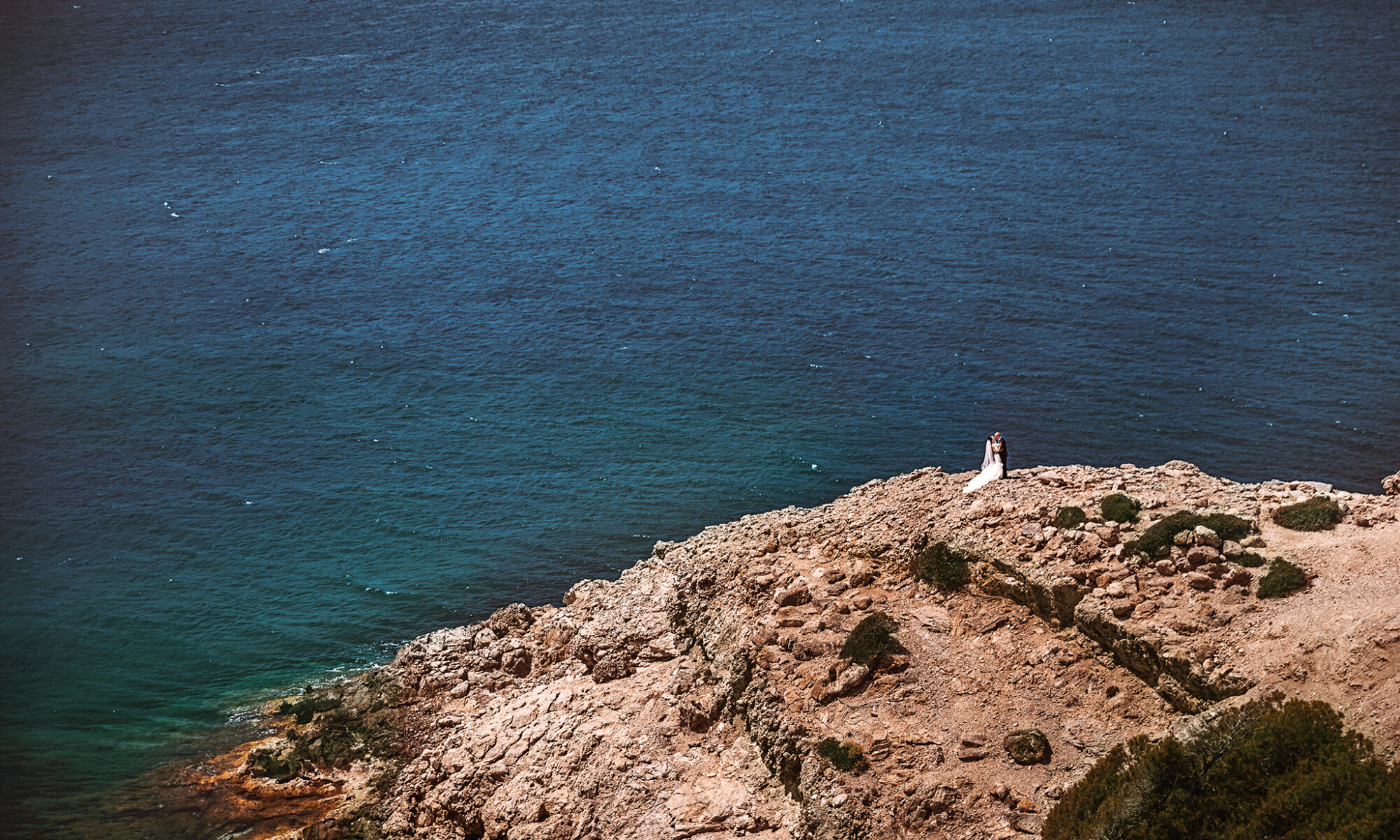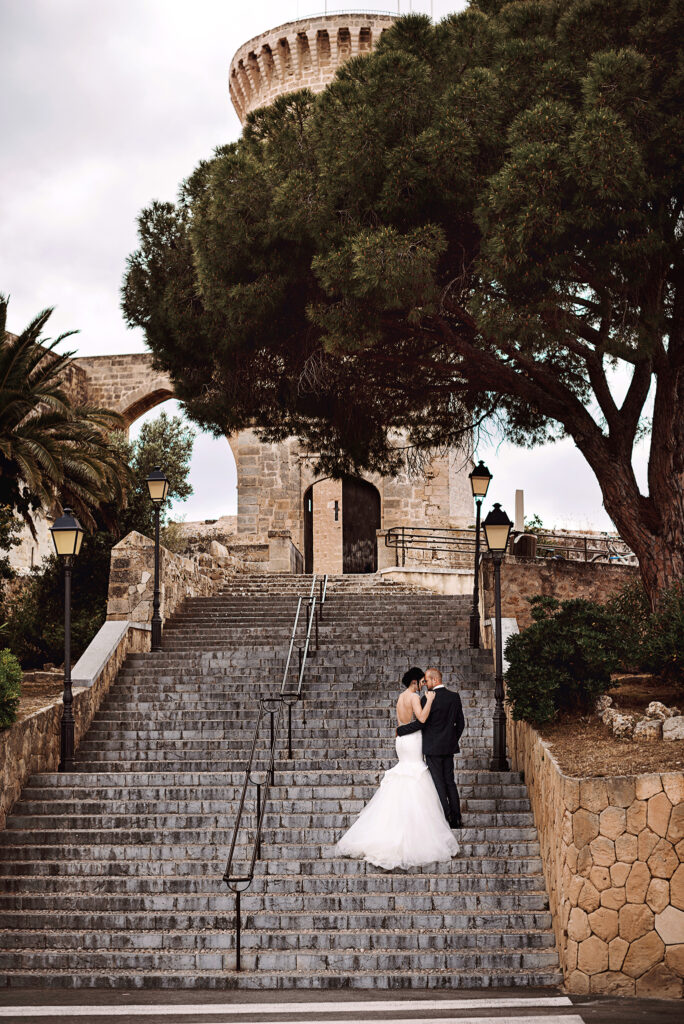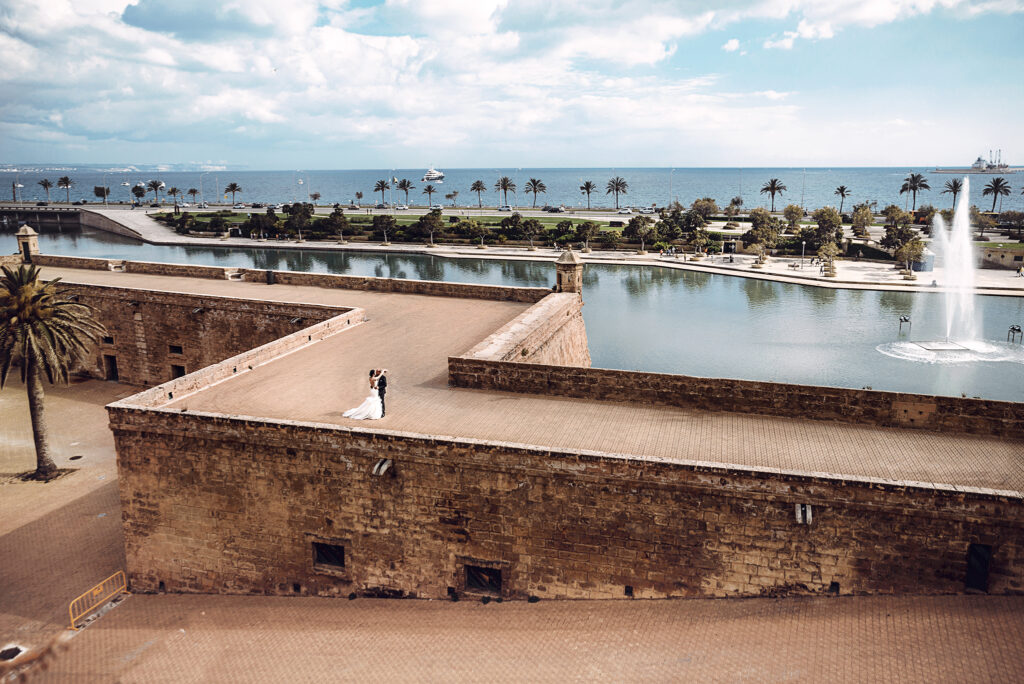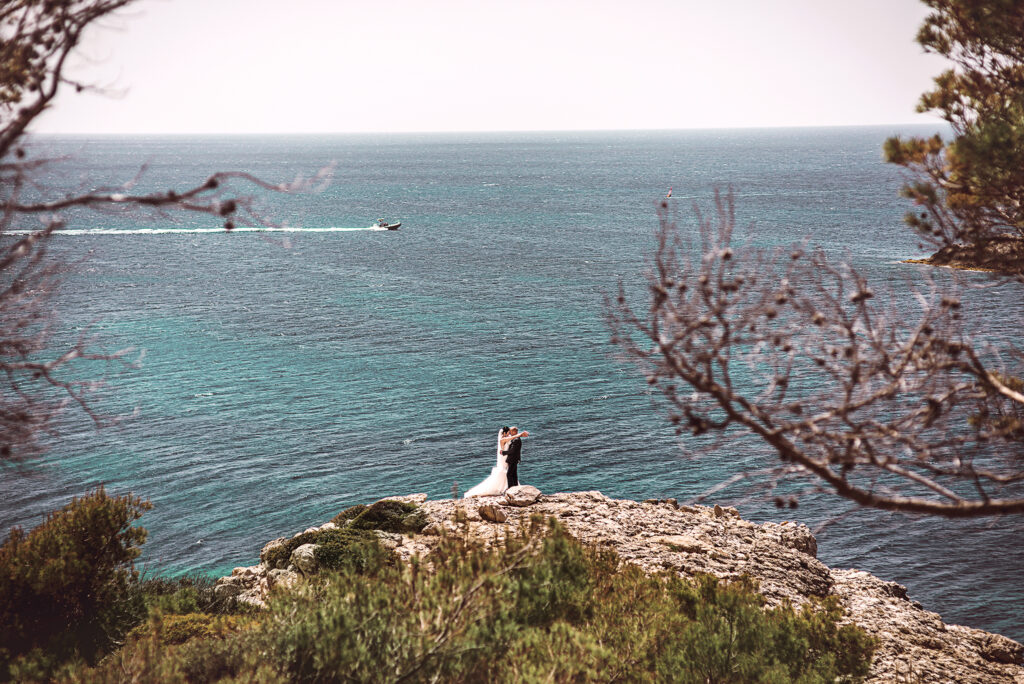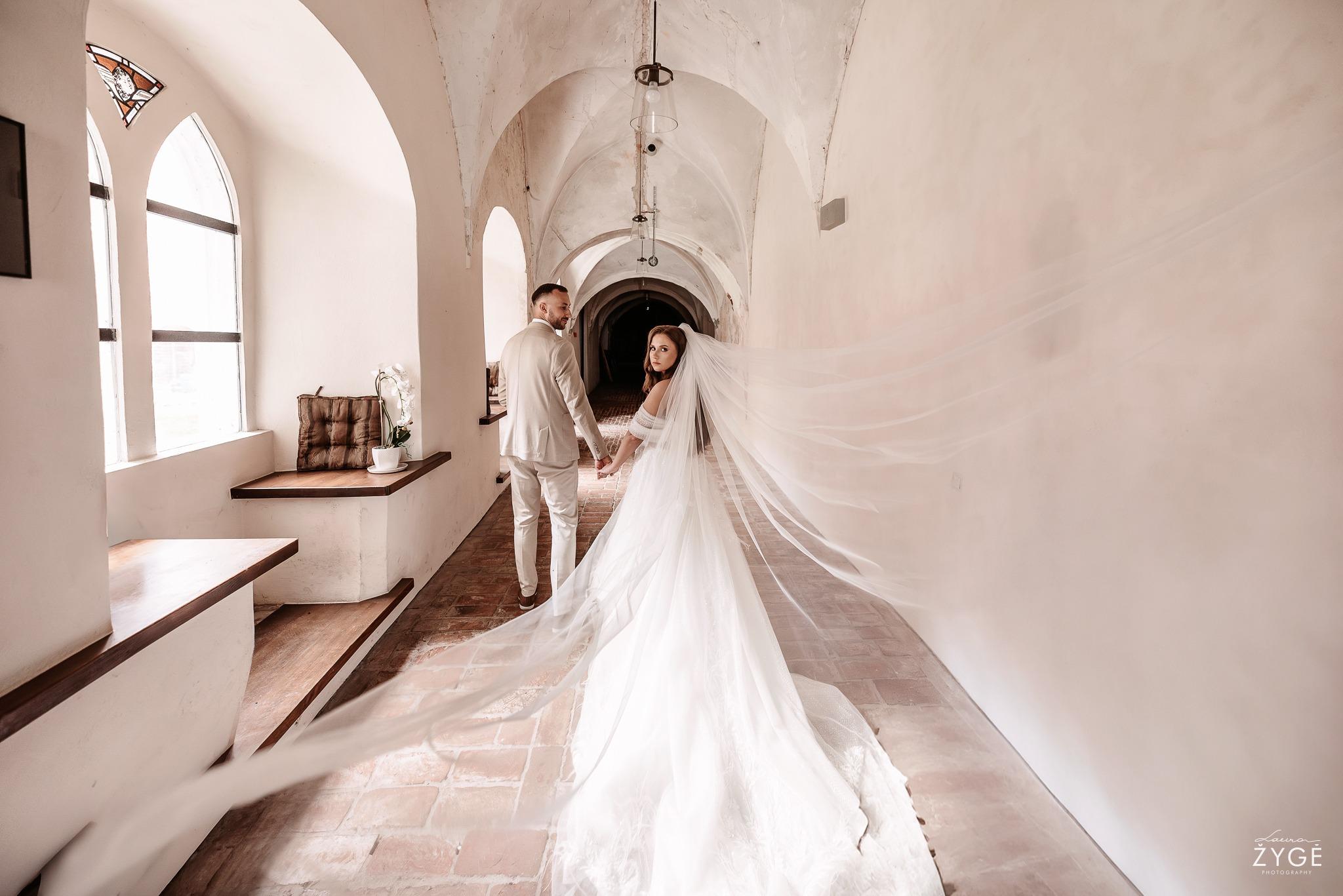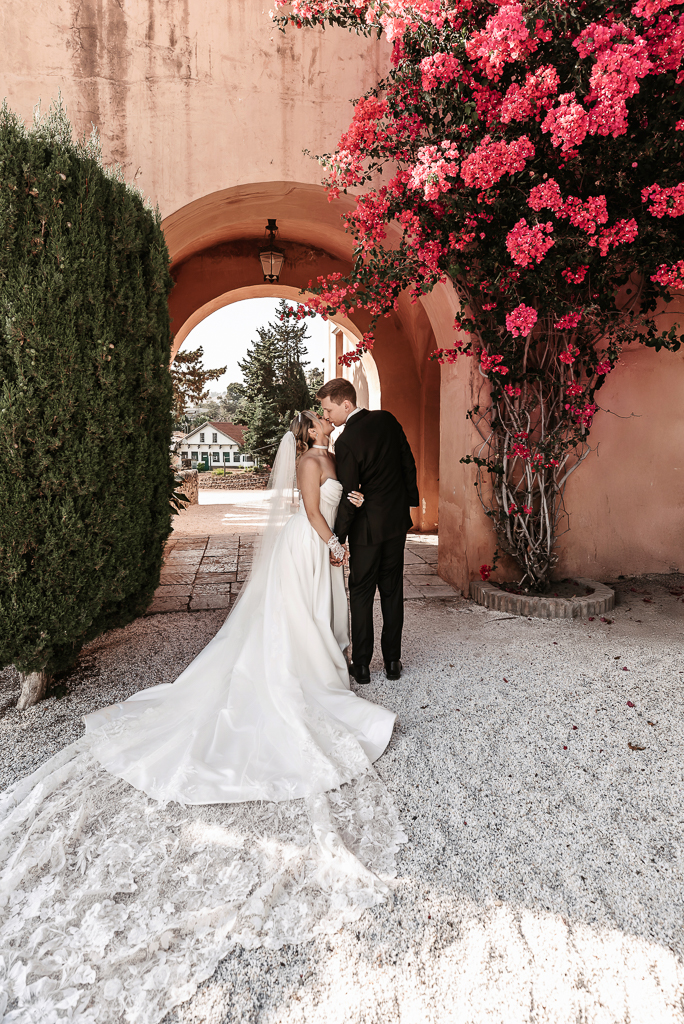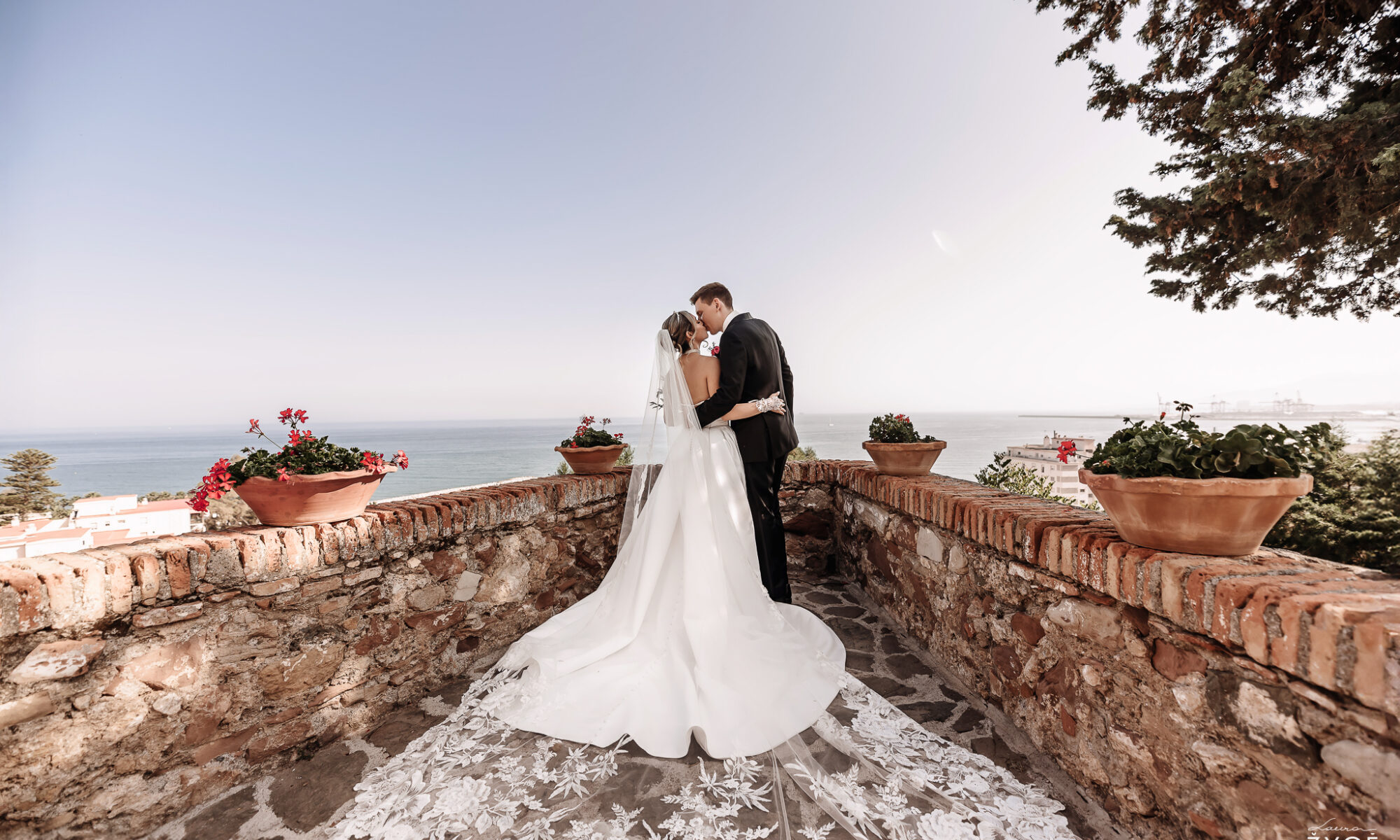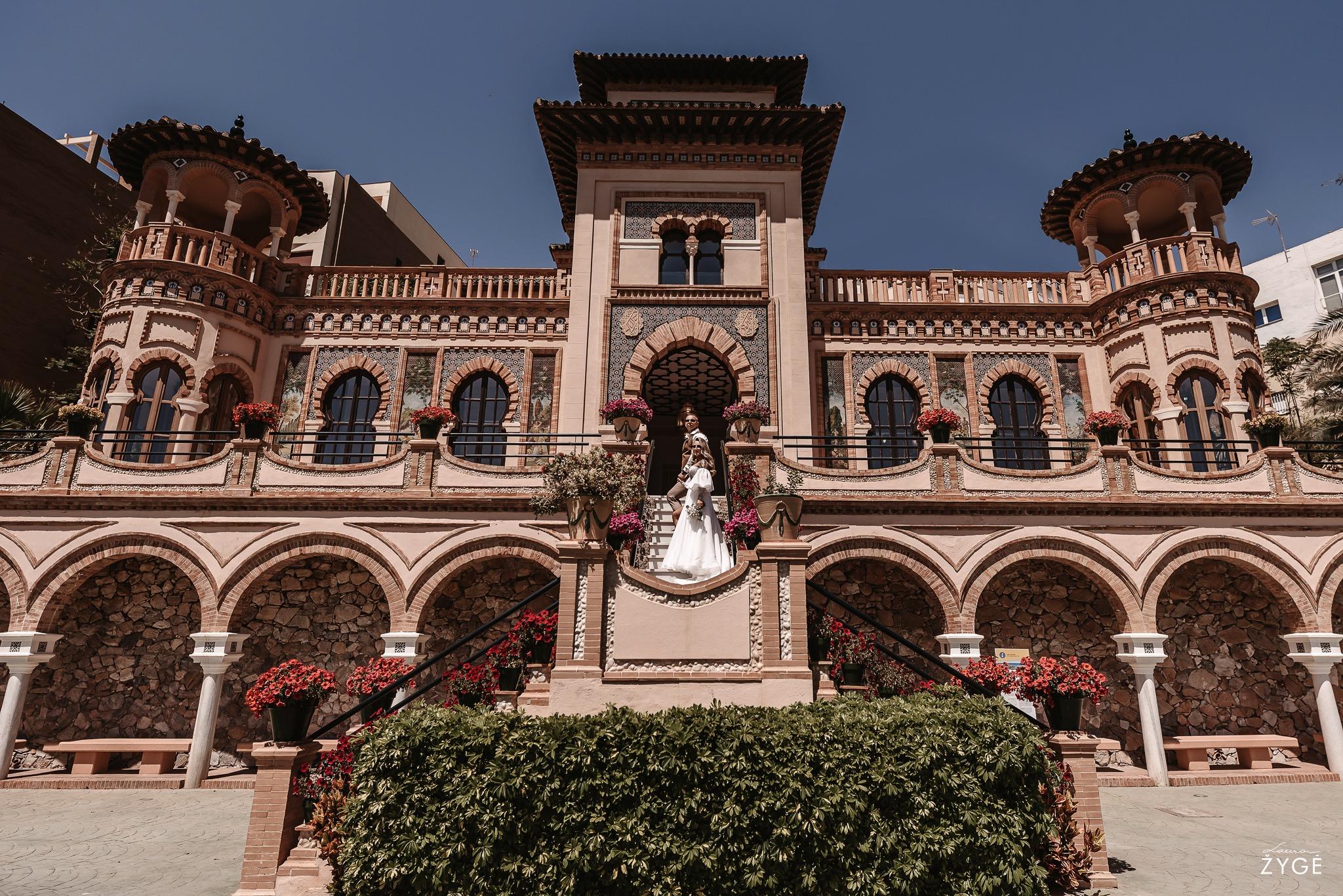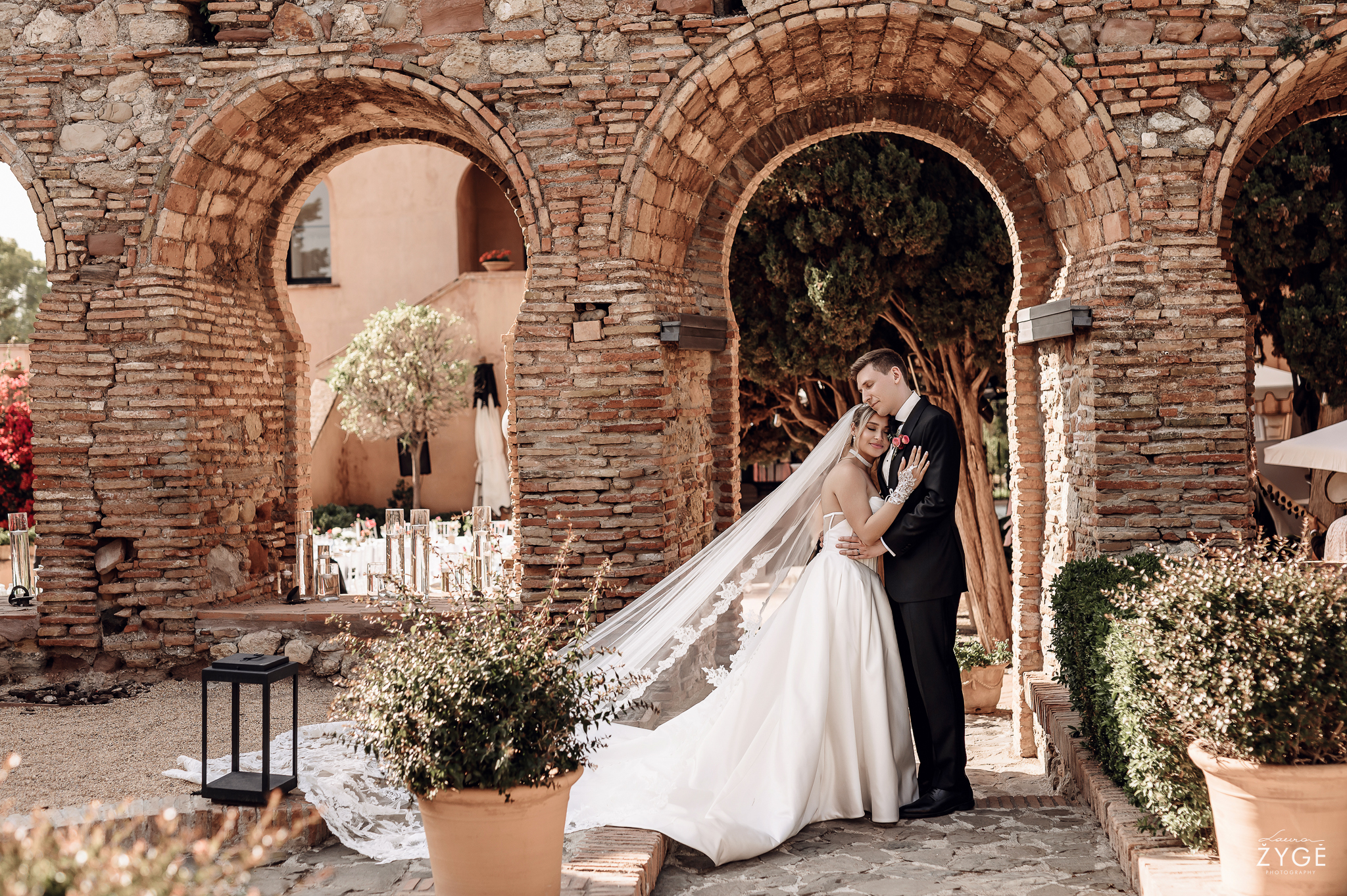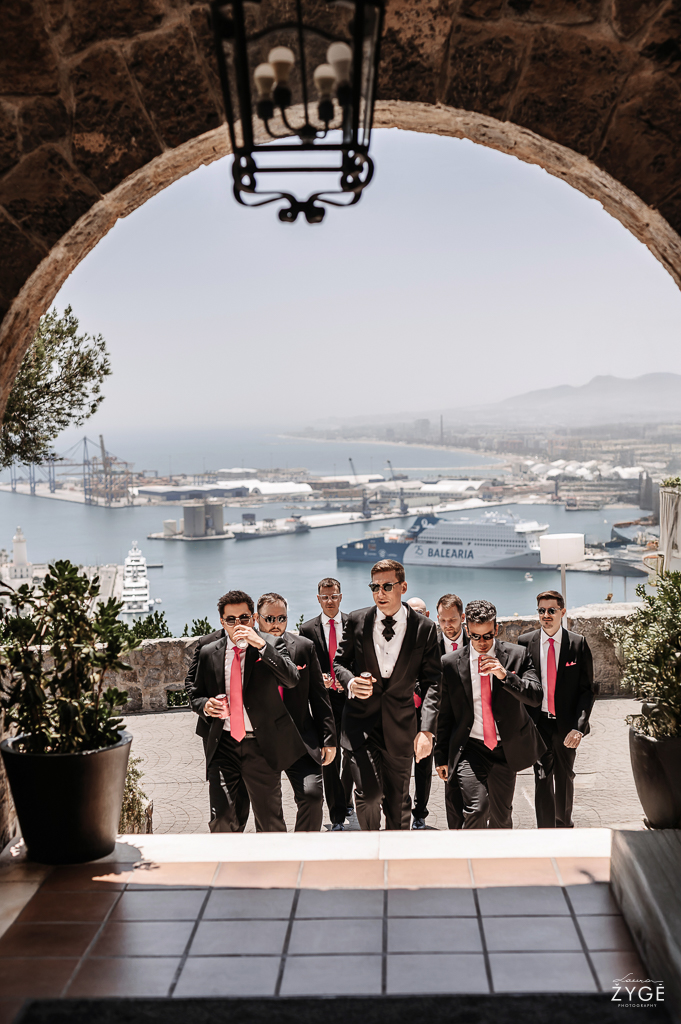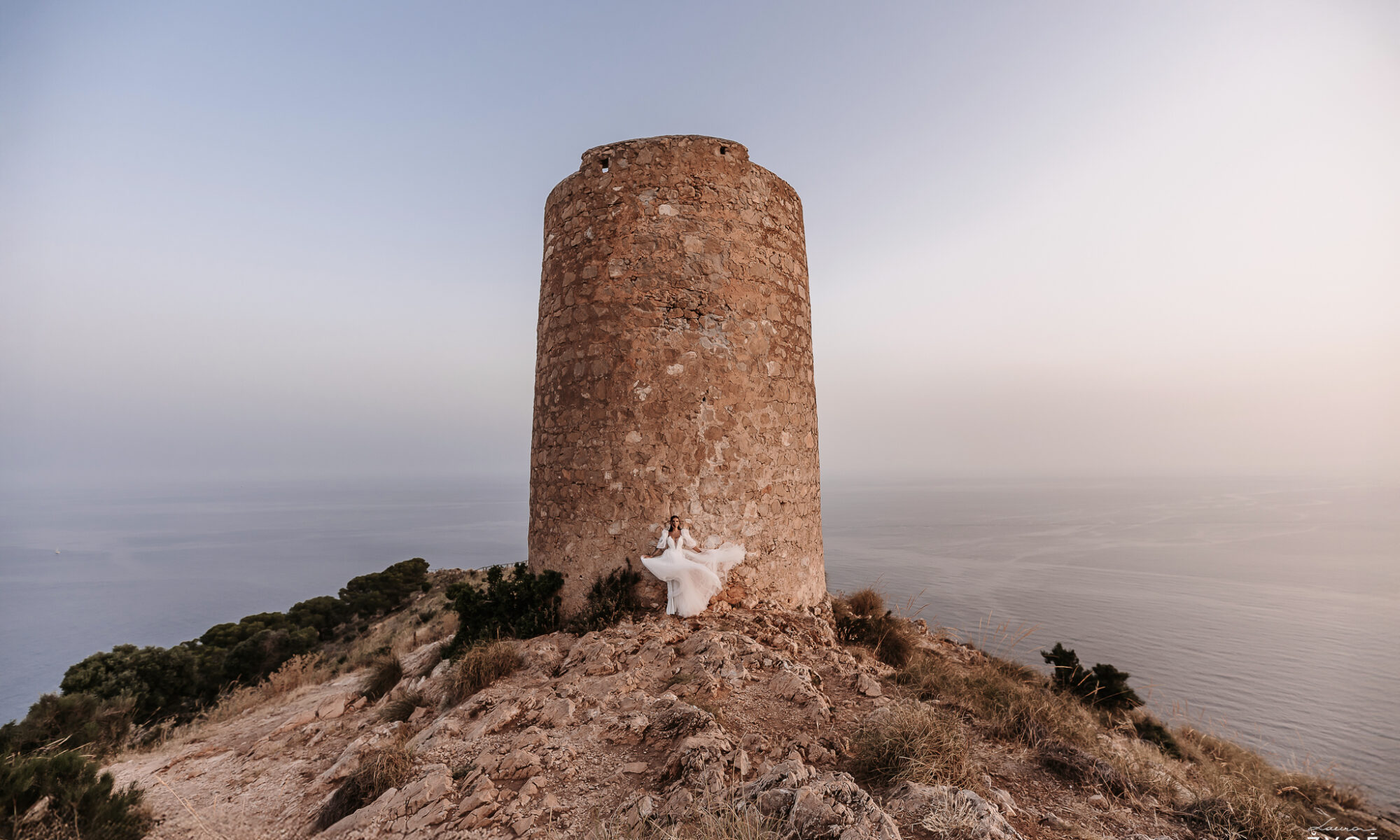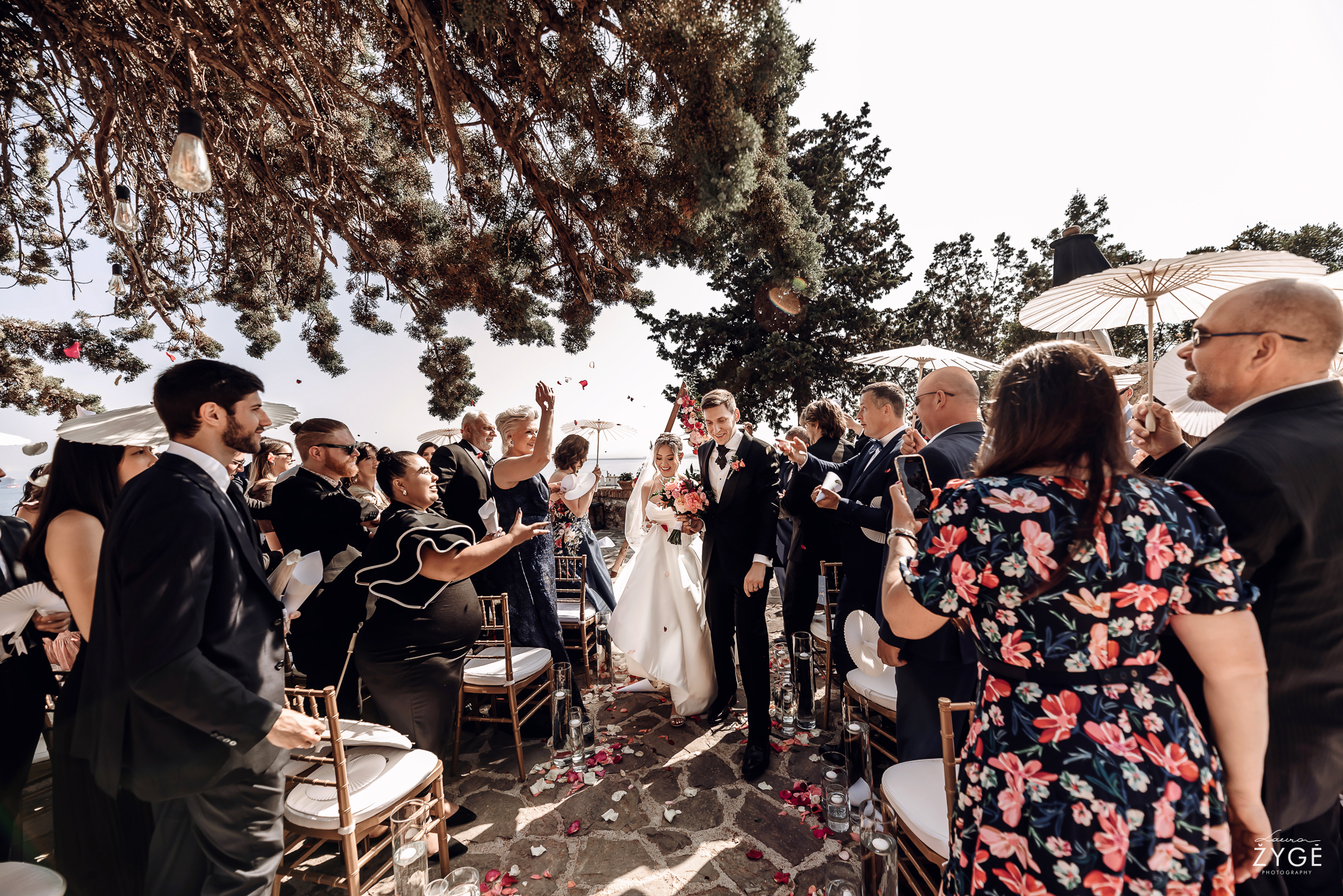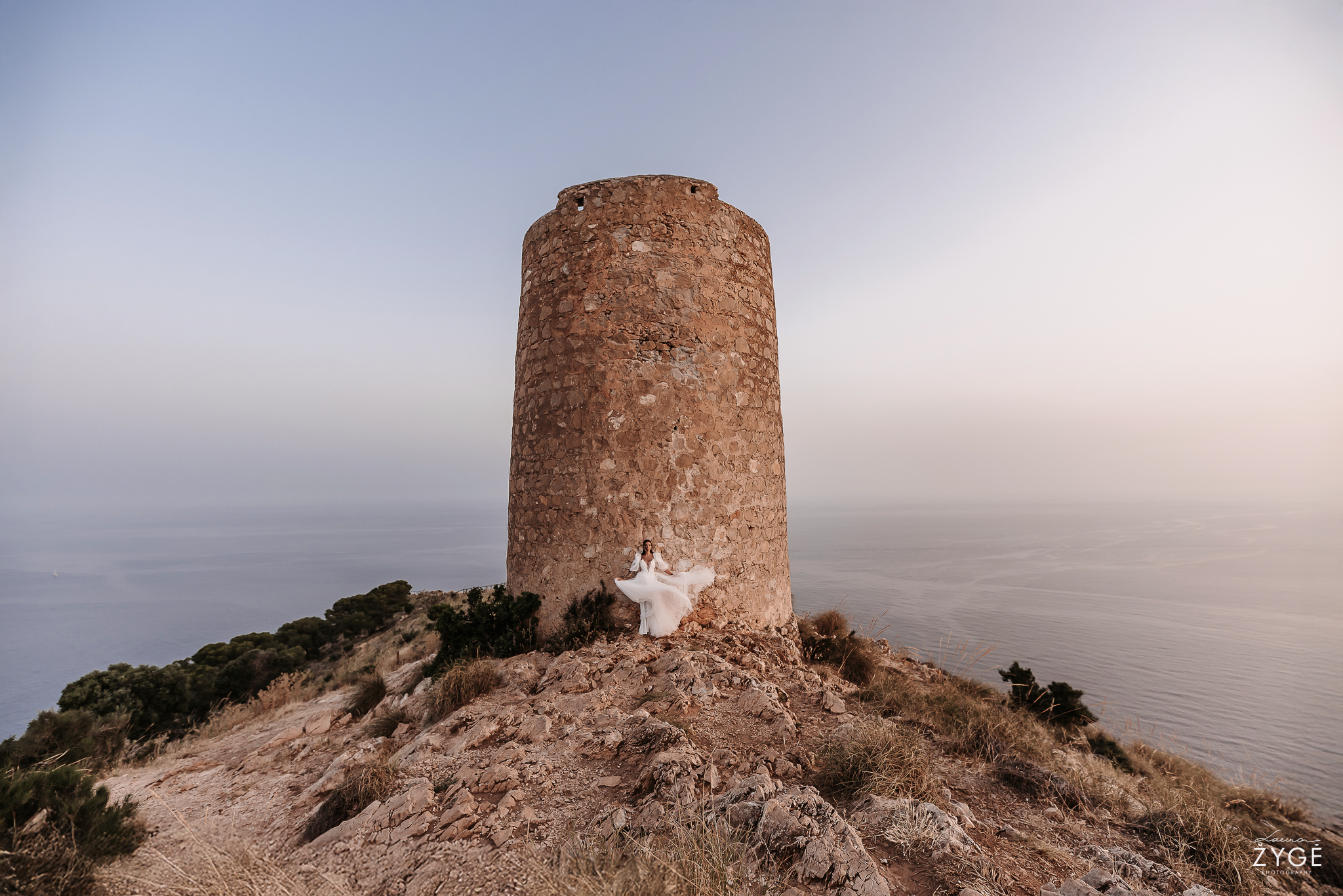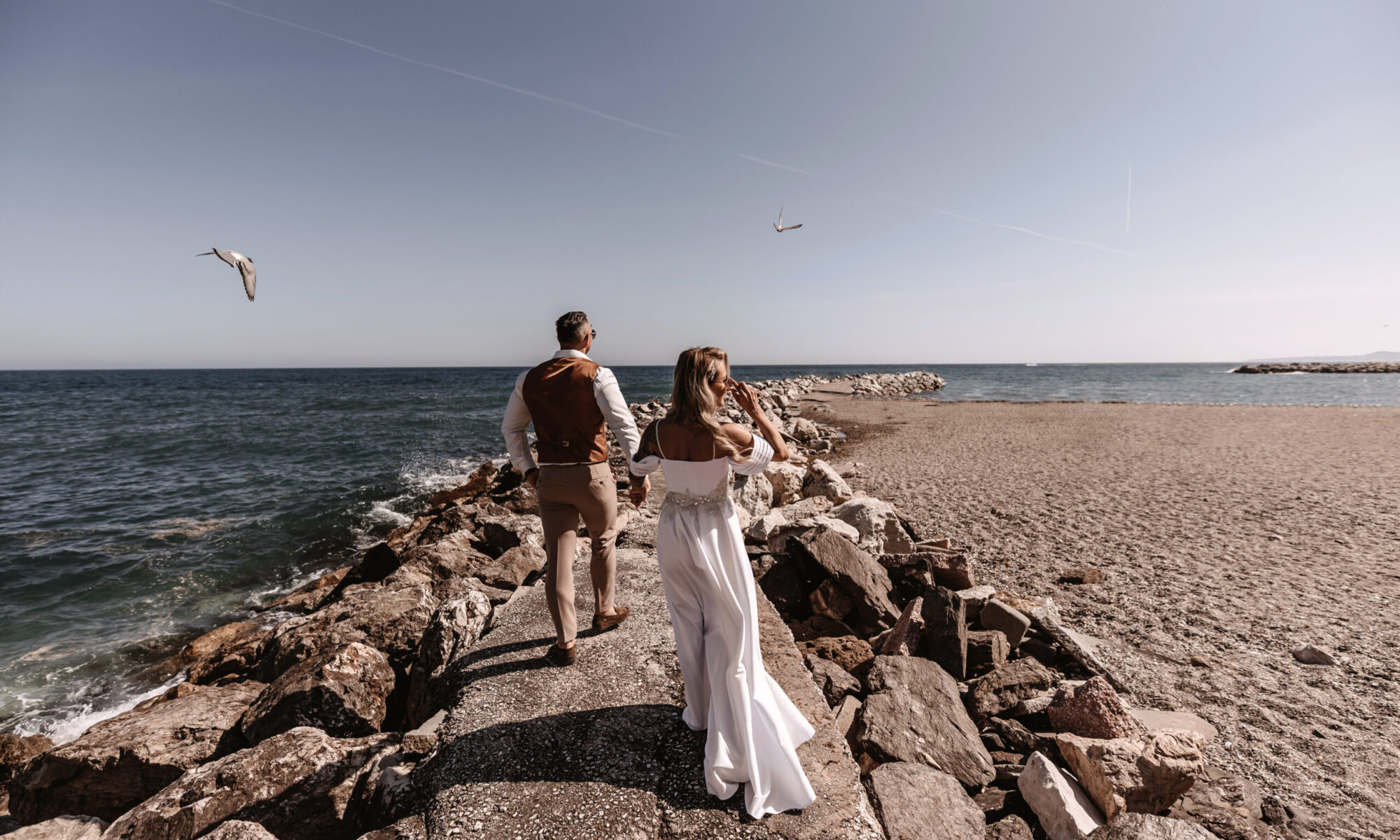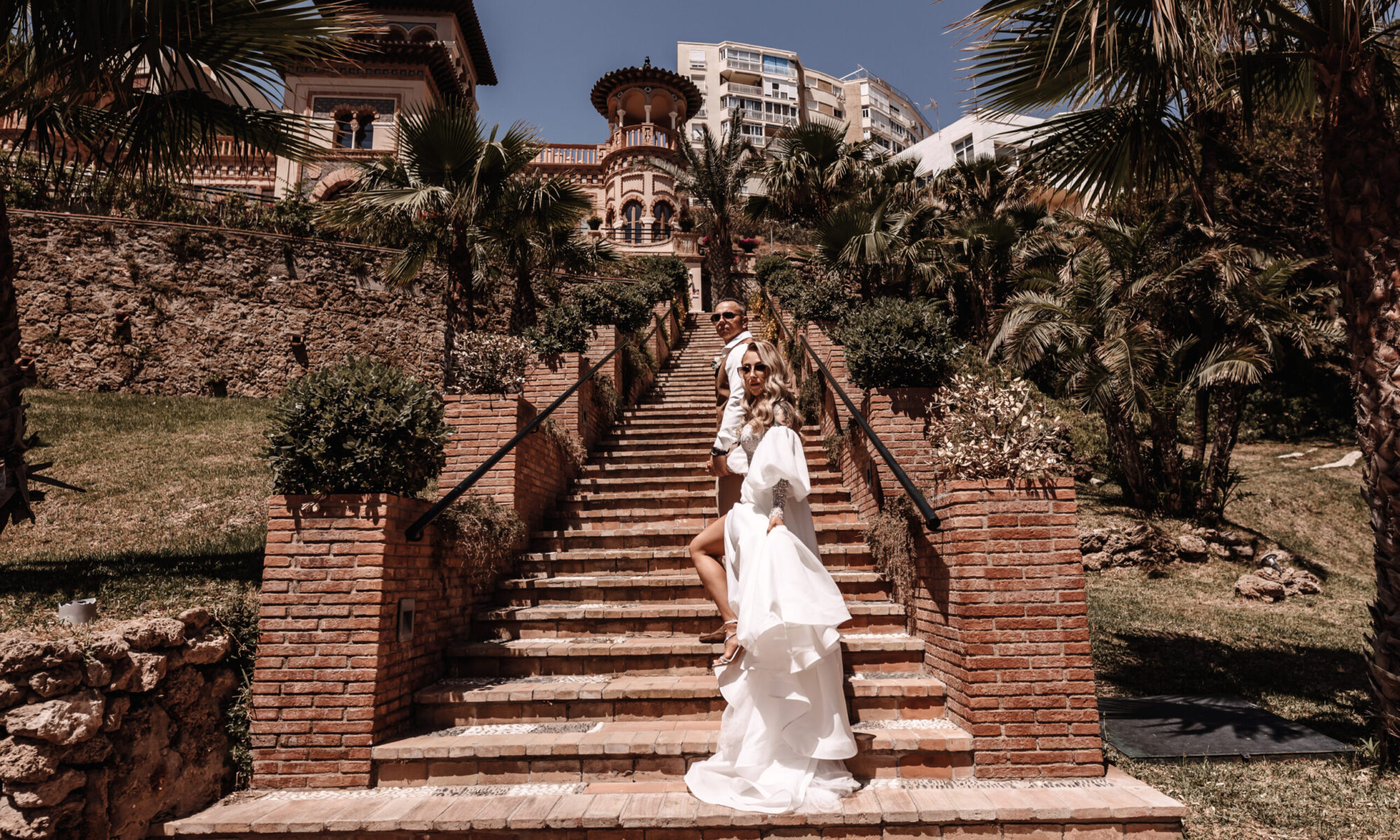Weddings in Mallorca: The Ultimate Guide to Your Dream Wedding in Mallorca
Sunny days, the blue Mediterranean Sea, stunning mountain landscapes, and authentic Spanish culture—just a few reasons why Mallorca has become one of the most popular destinations for weddings abroad. Every year this Spanish island draws thousands of couples from around the world. Mallorca offers an exceptional climate, easy access from any Europe’s country, a wide choice of services, and an unforgettable experience for both newlyweds and their guests.
This comprehensive guide covers everything you need to plan a wedding in Mallorca: from the best time of year and the most impressive venues to practical tips, budgeting, and local traditions.
Whether you’re dreaming of a cozy ceremony by the sea or a luxury celebration in a traditional Spanish finca, you’ll find all the essentials here to create your perfect day on this Mediterranean gem.
Why choose Mallorca for your wedding?
Mallorca—the largest island in the Balearic archipelago—offers a unique blend of Spanish culture, breathtaking scenery, and high-quality services, making it one of the most sought-after wedding destinations in the Mediterranean. A wedding in Mallorca isn’t just a ceremony and reception; it’s a memorable journey for you and your guests.
- Climate – over 300 sunny days a year; warm summers and mild winters make planning possible almost any time
- Diverse landscapes – from gorgeous beaches to dramatic mountains, green valleys, olive groves, and vineyards
- Venue variety – traditional Spanish fincas, luxury hotels, historic castles, vintage villas, or cozy beach restaurants
- Convenient location – direct flights from many European cities, including seasonal flights from Vilnius
- High-quality services – professional planners, photographers, florists, and other vendors experienced with international weddings
- Culinary experience – authentic Mediterranean cuisine, fresh seafood, local wines, and classic Spanish dishes
Mallorca is also known for its hospitality and openness to international guests. You’ll find professionals who speak English and other languages, and more and more local planners collaborate with other countries coordinators to ensure smooth communication and cultural understanding.
Essential planning tips and Mallorca wedding costs
Planning a wedding in Mallorca may differ from organising one in your residence country. Below are key steps and practical recommendations to keep your planning on track.
Planning timeline
- 12–18 months out: pick a date, book the venue, hire a planner, start looking at flights
- 9–12 months: notify guests, book photographer/videographer, plan accommodation
- 6–9 months: book catering, music, decor, dress and suit
- 3–6 months: finalize ceremony details, plan extra activities for guests
- 1–3 months: handle legal documents, schedule hair/makeup trials, confirm details with vendors
Local planners note that the most in-demand venues are often booked a year or even two in advance—especially Saturdays in the warm season. If you have a specific date or venue in mind, start early.
Typical Mallorca wedding budget breakdown
Costs vary by season, guest count, and desired level of luxury. A rough breakdown:
- Venue: €3,000–€15,000 (depending on type and season)
- Catering: €80–€200 per guest
- Beverages: €25–€50 per guest
- Planner: €1,500–€4,000 or 10–15% of the total budget
- Photo/Video: €1,500–€4,500
- Music/Entertainment: €800–€2,500
- Flowers & decor: €1,000–€3,000
- Transport: €300–€800
- Attire: set your own budget
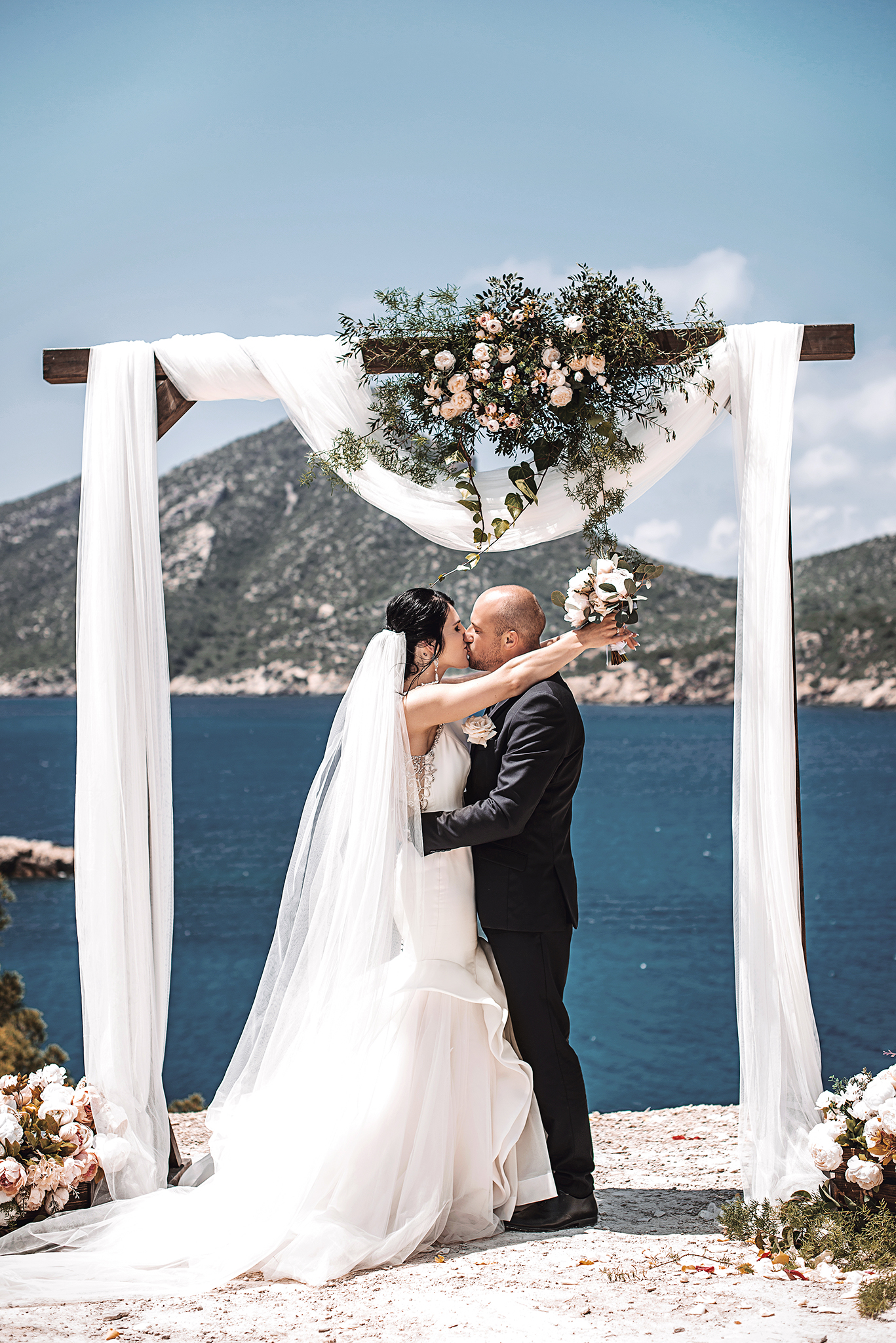
“A Mallorca wedding can cost about the same as in any other European country if you plan wisely and choose the right season,” says Indrė, a planner working with Lithuanian couples on the island. “Many are surprised the difference isn’t as big as they expected—especially if they’d choose a high-end venue at home. The difference in Mallorca is you get the sun, the sea, and a holiday built in.”
Don’t forget to factor in extras: flights (for you and possibly close family), accommodation, travel insurance, local transport, and additional activities. Many couples also plan pre- or post-wedding events such as a welcome party or farewell lunch.
The best time to marry in Mallorca
When choosing your date, consider weather, tourist seasons, and pricing. Each time of year has its perks.
Mallorca wedding seasons
- Spring (April–May): One of the most pleasant periods. Temps around 18–24°C, everything in bloom, fewer tourists, better prices than summer. May is especially popular.
- Summer (June–August): Hottest and driest, often above 30°C. The sea is warm, but this is peak season with the highest prices and busiest venues. If you choose summer, plan ceremonies for late afternoon.
- Autumn (September–October): Excellent time—fewer tourists, prices drop, temperatures remain comfortable (24–28°C in September, 20–24°C in October). The sea is still warm. Many planners consider September ideal.
- Winter (November–March): Quietest season with the lowest prices. Temps 10–18°C with occasional rain. Many venues and restaurants outside resort areas may close, but it’s perfect for privacy and a cozy atmosphere.
“Peak wedding season in Mallorca runs from May to October, when sunny days are almost guaranteed,” says Laura from Idea Mallorca. “Each month has its charm—May brings lots of blooms, and in September the sea is at its warmest.”
If you’re aiming for peak season (May–October), book at least a year in advance. If you’re flexible or on a tighter budget, consider the shoulder months (April or November), when prices can be 20–30% lower.
Dates to avoid
Watch out for local holidays and events when the island gets crowded and prices spike:
- Holy Week (Semana Santa) – one of the busiest times of the year
- Mid-August – peak tourist influx
- Local fiestas and holidays (especially Sant Joan on June 24)
- Major international events and concert dates
Venues, styles, and decor inspiration
Mallorca offers an amazing range—from waterfront villas to authentic country estates in the mountains. You can go classic, modern, bohemian, or traditional Spanish—whatever fits your vision and budget.
Most popular venues in Mallorca
- Traditional fincas (estates) – authentic properties with olive groves, vineyards, and mountain views. Popular picks: Finca Son Mir, Finca Es Cabas, Finca Comassema.
- Beach clubs & restaurants – for modern couples who want a sea view and a late-night party. Favorites: Puro Beach, Zhero Beach Club, Anima Beach.
- Luxury villas – private spaces with pools, gardens, and sea views—ideal for smaller, intimate weddings. Many can be found around Calvià, Port de Pollença, and Deià.
- Historic estates & castles – for romantic, regal vibes. Notable: Cap Rocat (a former fortress), Castell Son Claret, and Son Marroig.
- Luxury hotels – convenient, all-in-one solutions. Top names: Castillo Hotel Son Vida, The St. Regis Mardavall, Jumeirah Port Soller.
- Vineyard estates – a romantic setting among the vines. Recommended: Bodega Ribas, Son Termanor.
“When Lithuanian couples first see a finca in Mallorca, they often fall in love at first sight,” says Monika, a wedding photographer working with Lithuanian clients. “There’s a special Spanish character—old stone buildings, lemon-tree terraces, inner courtyards. That authenticity is hard to replicate in Lithuania.”
Popular styles and decor trends
Mallorcan decor draws on local Spanish aesthetics and global trends:
- Mediterranean style – light tones, sea motifs, citrus in decor, olive branches, terracotta tableware
- Boho-chic – natural materials, macramé, dried florals, pampas grass, wildflowers
- Rustic elegance – wood accents, olive sprigs, wine barrels, local blooms and greenery
- Modern minimal – clean lines, restrained palette (often white, green, blue), geometric details
- Spanish touches – flamenco elements, fans, castanets, traditional ceramics
Many couples choose decor that reflects Mallorca’s nature: olive branches, lemons, and local flowers like lavender or bougainvillea. “Hanging installations” of flowers or lights over dinner tables are also popular—especially for outdoor receptions.
Standout villas and hidden gems
Beyond the well-known spots, Mallorca hides unique locations that can set the tone for your celebration:
- Son Marroig – historic estate with a marble pavilion perched on a cliff, offering unreal Mediterranean views of the Sa Foradada peninsula
- La Fortaleza – the island’s most exclusive private property (featured in “The Night Manager”)
- Cap Rocat – a former military fortress turned luxury hotel with a private beach
- Ses Voltes – a 700-year-old mountain estate with sweeping vistas
- Sa Torre Cega – private villa with a botanical garden near Cala Ratjada
Planning something truly special? Book a site visit with a local expert and find the perfect location for your day!
Logistics and legalities: bringing your Mallorca vision to life
When marrying abroad, practical and legal aspects matter a lot. Understanding travel options, guest accommodation, and legal requirements helps you avoid surprises and keeps planning smooth.
Getting to Mallorca
Easy access is one of Mallorca’s big advantages. Palma de Mallorca Airport (PMI) is among Spain’s busiest, with flights from many European cities.
From the airport to the main resort areas you can take a taxi (€20–€60 depending on distance), pre-book a private transfer, or rent a car. If your venue is outside tourist centers, consider organizing group transport for guests.
Guest accommodation
Mallorca has options for every budget—from luxury hotels to cozy guesthouses and apartments:
- Planning blocks – reserve 9–12 months in advance for large groups
- Group discounts – 10+ rooms often qualify for reduced rates or perks
- Holiday rentals – villas can be economical for big families or friend groups
- On-site stays – many fincas and hotels can host the couple and part of the guests
“We often suggest venues that can accommodate at least close family on site,” notes planner Justė. “It’s convenient and lets you add extra events before or after the wedding.”
Legal requirements for marrying in Mallorca
For non-residents, a legal marriage in Spain can be complex due to documentation and bureaucracy. Most foreign couples choose one of these:
- Symbolic ceremony – the most popular choice; register the legal marriage in Lithuania before or after
- Civil ceremony – possible, but requires substantial paperwork, translations, apostilles, and typically 2–3 months of residence in Spain beforehand
- Religious ceremony – Catholic weddings are legally recognized but also require documentation and preparation
Documents commonly requested (even for a symbolic ceremony):
- Valid passports
- Birth certificates
- Proof you’re not currently married (if applicable)
- Divorce or widowhood documents (if applicable)
Important: always confirm legal requirements with a planner or lawyer, as rules can change. Most foreigner couples officially marry in their country and hold a symbolic ceremony in Mallorca, which avoids legal restrictions and lets you choose any place, time, and format.
Selecting local vendors
Reliable local vendors are the backbone of a smooth wedding. We recommend:
- Wedding planner – someone who speaks your language or English and has experience with international couples
- Photo/Video – a local who knows the best shooting spots, or your trusted pro from your country
- Catering – teams offering local cuisine with flexibility to adapt menus
- Music & entertainment – DJs or bands who can cover international hits and Lithuanian favorites
Many couples mix local and their county’s pros—for example, a local planner and videographer, but a makeup artist, photographer or MC from Lithuania.
Make it a full experience: activities, honeymoon, and more
A Mallorca wedding can easily turn into a multi-day celebration. Offer your guests extra activities, tie in your honeymoon, and make the most of the island.
Pre- and post-wedding event ideas
- Welcome party – a relaxed meet-up at a beach bar or restaurant the day before
- Send-off celebrations – boat or yacht day, water sports, or a spa day
- Guest excursions – trips to Palma, the Serra de Tramuntana, or the Drach Caves
- Farewell brunch – cozy breakfast or lunch the day after
- Wine tastings – visits to local vineyards and cellars
“Guests who travel a long way really value the extra activities,” suggests coordinator Ieva. “It feels like a full holiday, not just a few hours of celebration.”
Honeymoon in Mallorca
Mallorca is ideal not only for the wedding day but also for the honeymoon, helping you save on additional travel and extend the celebration:
- Romantic hotels – Cap Rocat, Belmond La Residencia, Jumeirah Port Soller
- Secluded beaches – Cala Deià, Cala Varques, Cala Tuent
- Fine dining – Michelin-star restaurants: Zaranda, Marc Fosh, Andreu Genestra
- Yacht charter – a private day or multi-day cruise around the island
- SPA time – relax at top island spas
- Mountain hikes – for active couples, trails in the Serra de Tramuntana
You can start the honeymoon right after the wedding or move to a different part of the island for a few days—changing resorts adds privacy and fresh experiences.
Best photo locations
Mallorca offers countless striking spots for wedding photos:
- Cap de Formentor – dramatic headland with a lighthouse and sweeping views
- Old Palma streets – authentic Spanish architecture and romantic alleys
- Sa Calobra & Torrent de Pareis – a stunning canyon meeting the sea
- Serra de Tramuntana roads – olive terraces and stone walls
- Es Trenc at sunset – one of Europe’s most beautiful natural beaches
- Valldemossa – a historic mountain village of stone houses
Many photographers offer “Trash the Dress” sessions in the sea or “Day After” shoots—perfect for relaxed portraits without time pressure.
“Mallorca’s light is incredibly photogenic, especially the ‘golden hour’ before sunset,” notes photographer Greta. “The mix of mountains, sea, and traditional architecture produces cinematic images.”
Conclusions
A wedding in Mallorca lets you blend a classic celebration with a holiday, Spanish culture, and Mediterranean beauty. A ceremony in the warm air, among olive trees and under blue skies, becomes a lasting memory for you and your guests. With careful planning and the help of local pros, your dream island wedding can come to life—whatever your budget or style.
Whether you choose an intimate seaside ceremony, a grand reception at a historic estate, or a cozy gathering among olive groves, Mallorca offers an unbeatable mix of culture, nature, and top-tier services to create your perfect day. Best of all, the sunny island makes it easy to celebrate outdoors amid breathtaking scenery—something no indoor venue back home can quite match.
Start early, work with professionals, and dive into an adventure that begins with your wedding—and may become a new family tradition of returning to this special island for anniversaries and holidays.
Frequently asked questions
How much does a wedding in Mallorca cost?
It depends on guest count, season, and level of luxury, but on average you can expect to spend a similar or slightly higher amount than for a wedding of the same caliber average European country. For around 50 guests, plan roughly €15,000–€30,000 including venue, catering, planner, and core services.
What legal documents are needed?
If neither partner is a Spanish resident, most couples choose a symbolic ceremony in Mallorca and complete the legal paperwork in their country. A legal marriage in Spain usually requires at least two months of residency and extensive documentation. Always verify current rules with official sources or a planner.
When is the best time to marry in Mallorca?
May–June and September are considered ideal—pleasant weather (23–28°C), fewer tourists than in July–August, and better pricing. These months offer the best balance of climate and cost.
Do we need a local wedding planner?
Highly recommended—especially if you don’t speak Spanish. A local planner helps with venue bookings, vendor selection, logistics, and legalities, and those experienced with foreign couples can be invaluable.
Can guests combine the wedding with a holiday?
Absolutely. Encourage guests to arrive a few days early or stay afterward to explore the island. You can organize group activities before or after the wedding to enrich everyone’s experience.


